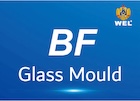As we celebrate World Earth Month, it's the perfect time to reflect on our daily habits and how they impact the environment. One small change we can make is to properly dispose of glass packaging. Read our latest blog post for tips on sustainable waste management.
Have you ever stopped to think about what happens to your glass bottles and jars once you've emptied them?
Proper disposal and recycling of glass packaging is crucial for creating a sustainable future, yet many people don't know how to do it correctly. As a glass bottle manufacturer, we believe that it's not just our responsibility to create high-quality and sustainable glass packaging products, but also to inform consumers about the importance of proper disposal and recycling of our products. In this article, we'll explain the glass recycling process and provide practical tips for ensuring that your glass packaging is properly disposed of and recycled.
First and foremost, it’s important to understand that glass is a highly recyclable material. In fact, glass packaging can be recycled indefinitely without losing its quality or purity. This means that every glass bottle or jar that is properly disposed of can be used to create a new product, which significantly reduces the need for raw materials and the energy required to produce them.
After usage, glass packaging should be placed in a recycling bin or taken to a recycling centre. Unfortunately, not all glass packaging is recycled. In fact, according to the European Container Glass Federation (FEVE), the average glass recycling rate in the European Union is around 76%. This means that the majority of glass packaging is being recycled and reused in a closed-loop system, helping to reduce waste and conserve resources. But, there is still room for improvement.
So, how can we ensure that the glass recycling rate improves?
There are some specific steps that consumers can take to ensure that glass packaging is being disposed of in the right way.
Place Glass Packaging in the Recycling Bin - Once the glass packaging is rinsed and free of any residue, it should be placed in the recycling bin. If your community does not have curbside recycling, look for recycling drop-off locations.
Seperate the glass by colour - Remember to always separate the different glass colours and don’t mix them.
Keep Broken Glass Separate - Broken glass should never be placed in the recycling bin. It can cause injury to workers and damage to equipment. Instead, it should be wrapped in paper or cardboard and disposed of with the regular rubbish.
Avoid Mixing Glass with Other Materials - Glass should be kept separate from other recyclable materials, such as paper and aluminium. So, always remember to unscrew caps & closures from the glass after usage and dispose of them separately.
By following these simple steps, consumers can help ensure that their glass packaging is properly disposed of and recycled in a closed-loop system.
But how does this closed-loop system of glass recycling work?
Generally, the cycle consists of five basic steps that are repeated over and over again.
Collection - Glass packaging, such as bottles and jars, is collected from homes, businesses, and recycling centres. The glass is sorted by colour (clear, green, brown, etc.) and any contaminants, such as labels or caps, are removed.
Crushing and Cleaning - The glass packaging is then crushed into small pieces, called cullet. The cullet is washed to remove any remaining contaminants, such as paper, plastic, or food residue.
Melting - The clean cullet is then heated to a very high temperature (around 1600°C) in a furnace, until it becomes molten glass. The molten glass is then poured into moulds to be formed into new glass packaging products.
Finishing - The new glass packaging products are then finished and inspected for quality. Labels and caps are added, and the products are packaged and shipped to manufacturers, distributors, and retailers.
Repeat - The glass recycling process can be repeated over and over again, without losing quality or purity, making it a highly sustainable and eco-friendly material.
As a glass bottle manufacturer, we are committed to promoting the proper disposal and recycling of glass packaging, and we encourage everyone to do their part to help create a more sustainable future.

























